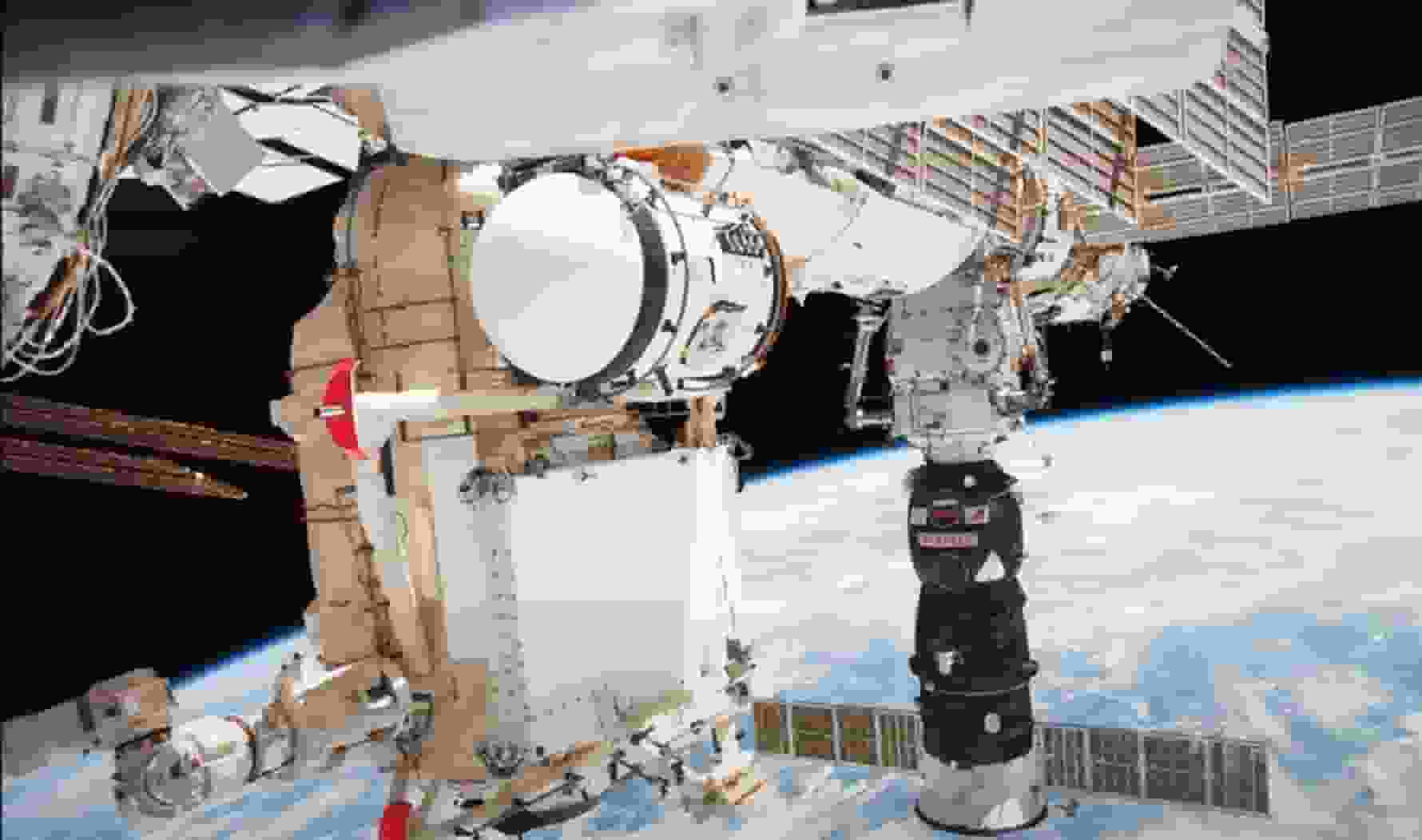
A coolant leak has been discovered on the Soyuz spacecraft attached to the Earth-facing side of the International Space Station.
As a result, according to NASA, Russian cosmonauts Sergey Prokopyev and Dmitri Petelin’s planned spacewalk on Wednesday has been immediately canceled.
Russian Soyuz Capsule Sprung Coolant Leak
The spacewalk was scheduled for 6 pm PT to move a high-temperature radiator from the Rassvet module to Russia’s newly installed Nauka multi-purpose laboratory module. Still, a stream of particles was visible in the MS-22 Soyuz’s vision before the cosmonauts exited the station.
In a tweet on Wednesday evening, NASA said that the astronauts on board are safe and the space station is in good condition.
On September 21, the spacecraft carried Prokopyev and Petelin to the station, along with NASA astronaut Frank Rubio, for the Soyuz MS-22 mission.
During the broadcast, Navias stated that the flakes had been indicative of a leak, but added that the substance had not been confirmed. The leak coincided with a decrease in the pressure in one of the spacecraft’s external cooling loops.
Researchers at Roscosmos in Moscow are analyzing the leak and will evaluate if it has caused damage to the integrity of the Soyuz spacecraft.
The spacewalk to move the radiator has been canceled for the second time. The cosmonauts were supposed to work on November 25, but there was a problem with the water-cooling loops in their suits.
Read more: NASA To Launch Its First-Ever Worldwide Water Survey
Video Shows Leakage in Space

Outside the station on a planned spacewalk, ground specialists observed a stream of fluid and particles, as well as a pressure drop on instruments, emanating from the Soyuz capsule on a live video feed from space.
The capsule was used by Prokopyev, Petelin, and NASA astronaut Frank Rubio to arrive at the ISS in September, and it now serves as a lifeboat for the crew. The station’s future operations, according to Krikalev, will be determined by an assessment of the capsule’s condition.
Along with Prokopyev, Petelin, and Rubio, four other crew members are currently on the space station: NASA astronauts Nicole Mann and Josh Cassada, Japan Aerospace Exploration Agency’s Koichi Wakata, and Roscosmos’ Anna Kikina.

